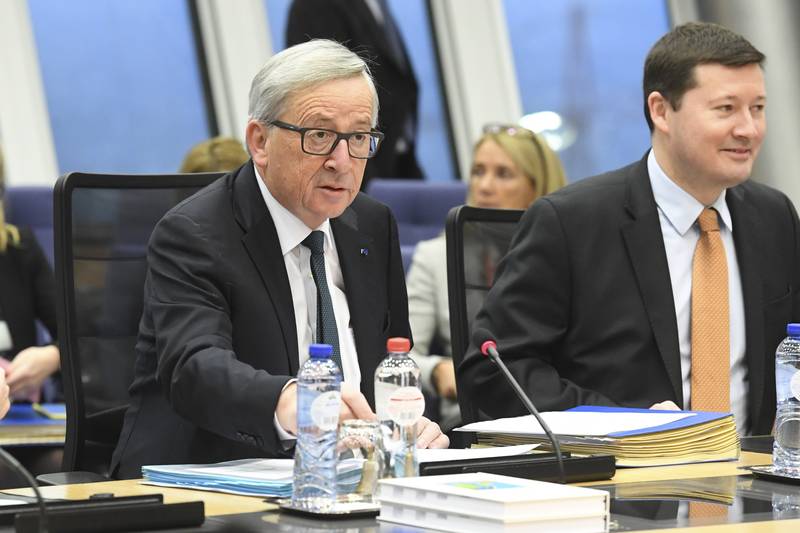A Croatian Perspective on the Bulgaria and Romania CVM Reports
Adelina Marini, January 26, 2017
 “In order for the EU to be effective in the disciplining of member states, it needs to be able to sanction. Cutting of EU funds because of problems with the rule of law in some of them might be a good idea”. This is the beginning of the commentary [in Croatian language] by the correspondent of one of the most read newspapers in Croatia, Jutarnji list, Augustin Palokaj on the occasion of the tenth report by the European Commission on the progress of Bulgaria and Romania under the unique for the EU Cooperation and Verification Mechanism. This is an idea, which euinside has put forward on numerous occasions and not only regarding the case of Bulgaria and Romania. Augustin Palokaj’s text has been written before the reports were made public and rather analyses the mechanism itself and its purpose.
“In order for the EU to be effective in the disciplining of member states, it needs to be able to sanction. Cutting of EU funds because of problems with the rule of law in some of them might be a good idea”. This is the beginning of the commentary [in Croatian language] by the correspondent of one of the most read newspapers in Croatia, Jutarnji list, Augustin Palokaj on the occasion of the tenth report by the European Commission on the progress of Bulgaria and Romania under the unique for the EU Cooperation and Verification Mechanism. This is an idea, which euinside has put forward on numerous occasions and not only regarding the case of Bulgaria and Romania. Augustin Palokaj’s text has been written before the reports were made public and rather analyses the mechanism itself and its purpose.
“Exactly ten years have passed since Bulgaria and Romania joined the EU, but these two states continue to be second grade members of sorts. The problem is not that the two are the poorest members, although Romania has gotten very close to Croatia, but in the verification and cooperation mechanism, which is a sort of monitoring by the EC, nonexistent for any other member state”, writes my colleague Palokaj, pointing out that the situation in Bulgaria is far worse than in Romania, for at the moment the country has no government and in less than a year it will take over the Presidency of the Council. “It would be truly embarrassing if the country that is presiding the Council is monitored by the EC due to insufficient results in the battle against corruption and organised crime”, continues the analysis.
Augustin Palokaj reports that the EC is preparing a scenario where the Mechanism is lifted before Bulgaria takes over the Presidency, but this will be subject to several conditions. He reminds that it was exactly because of Romania and Bulgaria that Croatia got a special monitoring levied on it prior to the membership, which saved the country from this very same Mechanism after joining in 2013. The other thing that saved Croatia was the scepticism of Germany and The Netherlands.
“Looking back from the perspective of today, such mechanisms for Bulgaria and Romania are truly useless, unpleasant, and unfair. Of course, there is a problem with corruption in these states and a serious one at that. But is there no such problem in other EU states as well?”, writes the Croatian journalist and reminds us of the words of the former Commissioner for Enlargement Günter Verheugen, according to whom, when talking about corruption, it is not Bulgaria and Romania that spring to his mind first. “And now there are more serious problems with the rule of law arising in other EU states, Poland and Hungary for example”, further writes the Jutarnji correspondent.
“Those mechanisms have grown obsolete. They did not manage to solve the problem and left Bulgaria and Romania with the feeling that they are being discriminated against, treated like second grade members. This is why it is urgent that they are removed”, ends his commentary Augustin Palokaj. He believes European institutions have the ability to affect member states when it comes to the protection of the European values. “And those values are much more threatened in some other member states, than in Bulgaria and Romania”, believes the journalist.
Translated by Stanimir Stoev
 Entrance to the Berlaymont building | © EC - Audiovisual Service
Entrance to the Berlaymont building | © EC - Audiovisual Service | © European Union 2020, EC - Audiovisual Service
| © European Union 2020, EC - Audiovisual Service Commission President Ursula von der Leyen | © European Union 2019 - Source: EP
Commission President Ursula von der Leyen | © European Union 2019 - Source: EP Kolinda Grabar-Kitarovic | © KGK
Kolinda Grabar-Kitarovic | © KGK Jozo Rados | © European Parliament
Jozo Rados | © European Parliament Aleksandar Vucic, Andrej Plenkovic | © Vlada RH
Aleksandar Vucic, Andrej Plenkovic | © Vlada RH